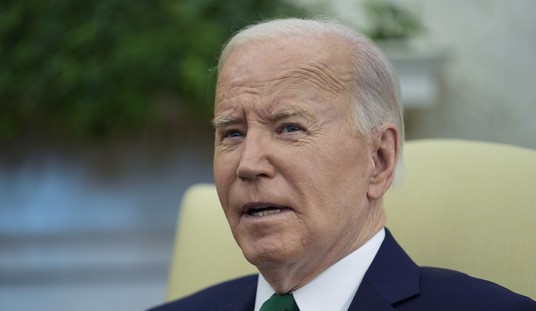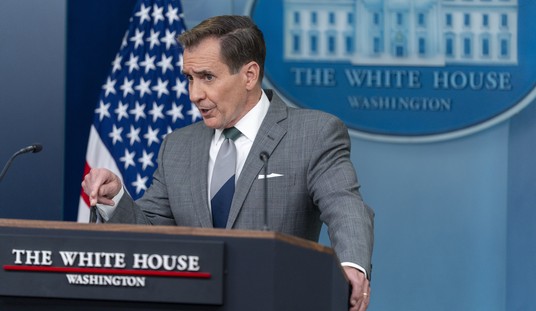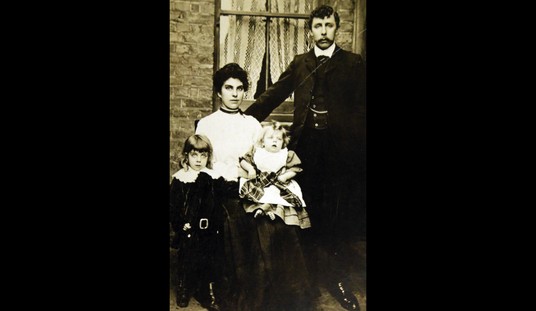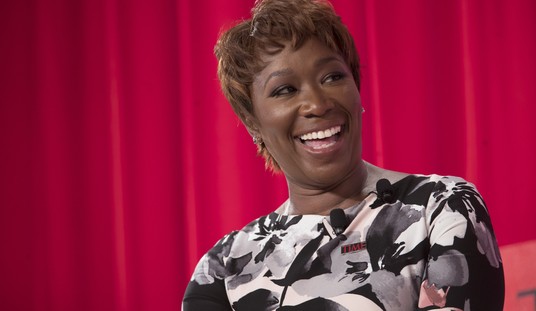
As was reported earlier today by my Red State colleague Bonchie, the NY Post published a bombshell story this morning regarding the contents of a laptop computer seemingly abandoned at some point by Hunter Biden. A forensic analysis of the computer resulted in the discovery of emails and videos that confirm many of the “salacious” stories about Biden’s activities on behalf of the Ukrainian energy company Burisma, and his extra-curricular activities in his personal life. I guess we can call these “salacious AND verified.”
The contents of the computer, as recounted in the NY Post story, have been bouncing around the internet all day — a fact that was noticed and ADDRESSED by social media platforms.
My colleague Nick Arama covered the announcement by Facebook that they would not allow links to the NY Post story until third-party fact-checking partners of Facebook had a chance to review the NY Post story to determine whether it is accurate reporting or likely “disinformation” which it is limiting distribution of during the election season.
Senator Josh Hawley managed to mix it into his questioning today of Judge Amy Coney Barrett, starting at about the 1:00 minute mark of this clip:
Sen. Hawley just murdered Hunter and Joe Biden on live TV. pic.twitter.com/qyuptl5BQ4
— Caleb Hull (@CalebJHull) October 14, 2020
And now it seems that Twitter has gotten in on the suppression effort. Yashar Ali tweeted out earlier that Twitter is blocking links to the NY Post article from being Tweeted, and is preventing the link from being shared in direct messages between users.
Twitter has blocked users from tweeting the New York Post story link and from sending the link via direct message to other users.
— Yashar Ali 🐘 (@yashar) October 14, 2020
Twitter making this decision on a hacked materials policy is a rocky road that will lead to inconsistent enforcement. https://t.co/Uns340v9kx
— Yashar Ali 🐘 (@yashar) October 14, 2020
Twitter is also posting a warning on efforts to link the NY Post article on the basis that it is “Unsafe”.
Twitter is now flagging the NY Post about Joe Biden lying to the American people as "unsafe."
Wow. pic.twitter.com/KQcikpX3L9
— Abigail Marone 🇺🇸 (@abigailmarone) October 14, 2020
So, a link to an article in the NY Post — a publication founded in 1801 when Thomas Jefferson was President — is now “Unsafe” for Twitter users to read.
Now note the following:
— Cameron Cawthorne (@Cam_Cawthorne) October 14, 2020
As Nick Arama pointed out in a story about Facebook’s action, the official at Facebook who announced they were limiting distribution of the NY Post article is also a former Democrat Party operative in California, which was pointed out by the Trump-Pence Campaign:
🚨📩 INBOX from @TeamTrump —>
Former Democrat operative turned Facebook official censoring journalism harmful to Biden pic.twitter.com/mTT4yMKzD0
— Abigail Marone 🇺🇸 (@abigailmarone) October 14, 2020
There is a very interesting angle to these actions by Twitter and Facebook, as they come only one day after Justice Clarence Thomas issued a statement as part of a Denial of Cert by the Supreme Court, addressing the fact that the Court has yet to take a case involving issues under Sec. 230 of the Communications Decency Act. Senator Hawley covered Justice Thomas’ published statement in the clip above.
Briefly stated, Sec. 230 provides protection from liability for internet service or content providers in a manner similar to “publishers” and “distributors” of written materials. As Justice Thomas noted, when the statute was passed 26 years ago, almost none of the current social media behemoths even existed.
Enacted at the dawn of the dot-com era, §230 contains two subsections that protect computer service providers from some civil and criminal claims…. The second subsection provides direct immunity from some civil liability. It states that no computer service provider “shall be held liable” for (A) good-faith acts to restrict access to, or remove, certain types of objectionable content; or (B) giving consumers tools to filter the same types of content. §230(c)(2). This limited protection enables companies to create community guidelines and remove harmful content without worrying about legal reprisal.
This is, in effect, what Facebook and Twitter have done. In commenting on the way the law surrounding Sec. 230 has been interpreted by Courts of Appeal in the absence of any SCOTUS case, he writes:
Adopting the too-common practice of reading extra immunity into statutes where it does not belong …, courts have relied on policy and purpose arguments to grant sweeping protection to Internet platforms. R. Smolla, Law of Defamation §4:86, p. 4–380 (2d ed. 2019) (“[C]ourts have extended the immunity in §230 far beyond anything that plausibly could have been intended by Congress).
But by construing §230(c)(1) to protect any decision to edit or remove content…, courts have curtailed the limits Congress placed on decisions to remove content, see e-ventures Worldwide, LLC v. Google, Inc., 2017 WL 2210029, *3 (MD Fla., Feb. 8, 2017) (rejecting the interpretation that §230(c)(1) protects removal decisions because it would “swallo[w] the more specific immunity in (c)(2)”). With no limits on an Internet company’s discretion to take down material, §230 now apparently protects companies who racially discriminate in removing content. Sikhs for Justice, Inc. v. Facebook, Inc., 697 Fed. Appx. 526 (CA9 2017)(concluding that “‘any activity that can be boiled down to deciding whether to exclude material that third parties seek to post online is perforce immune’” under §230(c)(1)).
Justice Thomas has been advocating for the Court to revisit the development of libel law that followed New York Times v. Sullivan, the protections of which he thinks were created out of thin air by Justice Brennan in his majority opinion. He similarly calls into question the sweeping immunities that lower courts have conferred on social media companies in their interpretations of Sec. 230.
A common thread through all these cases is that the plaintiffs were not necessarily trying to hold the defendants liable “as the publisher or speaker” of third-party content. §230(c)(1). Nor did their claims seek to hold defendants liable for removing content in good faith. §230(c)(2). Their claims rested instead on alleged product design flaws—that is, the defendant’s own misconduct. Yet courts, filtering their decisions through the policy argument that “Section 230(c)(1) should be construed broadly,” give defendants immunity.
Paring back the sweeping immunity courts have read into §230 would not necessarily render defendants liable for online misconduct. It simply would give plaintiffs a chance to raise their claims in the first place. Plaintiffs still must prove the merits of their cases, and some claims will undoubtedly fail.
The claim in this instance would belong to the NY Post. Facebook and Twitter have opted to act as “super-editors” by blocking user access to the Post’s story. As currently interpreted, Facebook and Twitter consider themselves “immune”, and the motives for their conduct are irrelevant as a result. It is quite timely that these comments by Justice Thomas were published yesterday given the actions of Facebook and Twitter today.















Join the conversation as a VIP Member